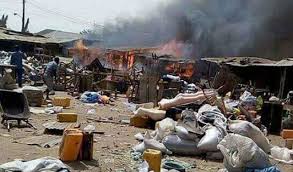
TWENTY-FOUR years ago, precisely on September 7,2001, the serenity of Jos (once celebrated as a city of peace and harmony), was shattered by a violent crisis that pitted neighbours against one another. What unfolded that bloody Friday marked not just a tragic loss of lives and property, but also the beginning of deep-rooted divisions that would scar Plateau State for decades.
Though the 2001 crisis appeared sudden, it was the culmination of long-simmering tensions dating back to at least 1994. Early strains in inter-group relations were ignored, with the military government’s ‘jackboot’ suppression treating symptoms rather than causes. This neglect allowed grievances to harden, creating an explosive situation.
The violence of that day broke the fragile social contract that had allowed communities of different faiths and ethnicities to coexist. Neighbourhoods once shared became segregated zones, turning familiar streets into ‘no-go areas’. That moment redefined Jos, laying the foundation for recurring cycles of violence that continue to haunt the region.
While Plateau reeled from its own tragedy, another catastrophe of global proportions was about to unfold.
And 9/11 happened
A few days after the prolonged communal conflict in Jos, the 9/11 attacks occurred. This singular act by al-Qaeda shook the world and changed the global approach to fighting terrorism.
The 9/11 attacks were the deadliest terrorist attacks in history, resulting in the deaths of nearly 3,000 people and injuring over 6,000 others. The attacks had a profound and lasting impact on the world, leading to a global war on terror. In response, the U.S. launched the ‘war on terror’, invading Afghanistan to dismantle al-Qaeda and depose the Taliban regime that harboured the group.
The attacks also led to a massive overhaul of airport security, the creation of the Department of Homeland Security in the U.S. and an increased focus on global counter-terrorism efforts.
These attacks highlighted the devastating consequences of terrorism and the complex global response that followed.
Wounds that spread beyond the city
The tragedy was not confined to Jos alone. In the years that followed, violence spread into surrounding rural communities, fuelling suspicion among groups that had lived together peacefully for generations. Opportunists, described as ‘conflict entrepreneurs, ‘took advantage of the divisions for personal and political gain, weakening the very fabric of Plateau’s society.
The children of this era have grown up knowing only mistrust and segregation. Many lack the memory of shared community and common humanity. The involvement of outsiders, who have no stake in the history or survival of these communities, has worsened the conflict, leaving the younger generation trapped in cycles of hate and fear.
The impact of the crisis has been devastating on Plateau’s economy and social order. Businesses collapsed as trust eroded, leaving thousands unemployed. Many idle youth became easy recruits as foot soldiers for renewed conflicts. Crimes once alien to Jos, such as kidnapping, theft and violent attacks, crept into daily life.
The sense of communal responsibility was replaced with suspicion and selfishness. Protecting one’s ‘own’ became more important than protecting the truth. Even matters of discipline, once managed within communities, began escalating into ethnic or religious crises, further deepening divisions.
Acall for justice, reflection
Two decades and four years on, the wounds of the 2001 Jos crisis remain unhealed. Despite countless panels and committees, the political will to resolve these challenges has been absent. Leaders have too often spoken of peace in public while stoking division in private, ensuring that no real progress has been made.
The path forward demands honest reflection. Plateau people must ask whether these endless cycles of conflict truly serve anyone’s interest. Our shared humanity, not ethnic or religious identity, should define how we relate with one another. Above all, justice and fairness must guide society. As such, laws must be applied equally, and offenders, regardless of background, mustfacejustice.
Without such a commitment, a safe and united Plateau and, indeed Nigeria, will remain an elusive dream.



